How Medication Management Enhances Recovery Outcomes

Understanding Medication Adherence and Its Importance
Medication adherence plays an integral role in enhancing recovery outcomes across various healthcare settings. Patients often struggle with adhering to prescribed medication regimens due to numerous factors. This article explores how structured medication management strategies can address these challenges, boost adherence, and ultimately improve recovery outcomes.
Medication Adherence's Impact on Health Outcomes
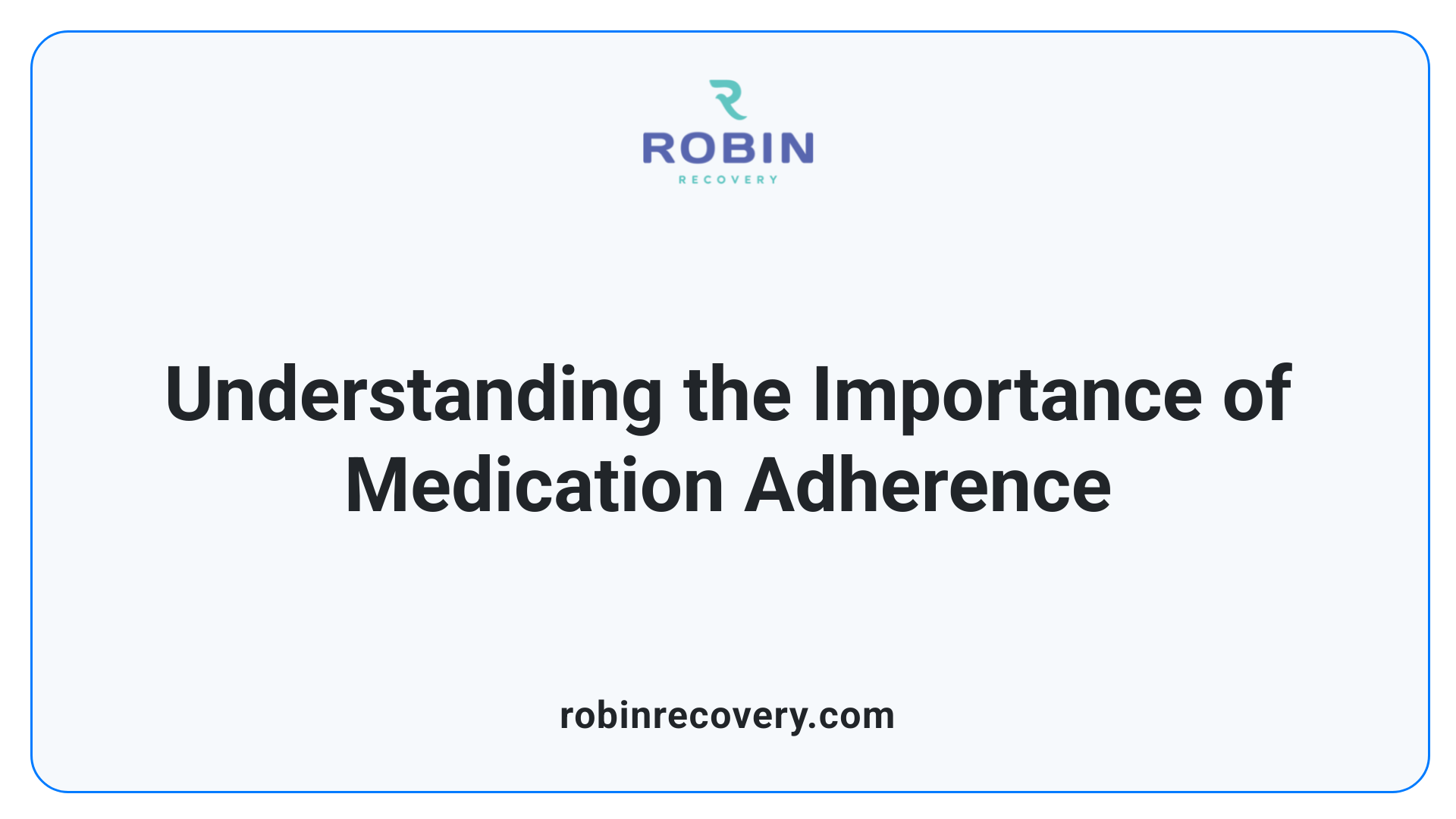
The significance of medication adherence
Medication adherence is crucial as it directly influences health outcomes. Patients who follow their prescribed regimens can better manage chronic conditions, resulting in fewer complications and improved quality of life. Effective medication management systems, when coupled with strong patient-provider relationships, can encourage adherence, empowering patients by simplifying their treatment plans.
The consequences of poor adherence
Poor adherence is widespread, especially among patients with chronic illnesses like diabetes, hypertension, and hyperlipidaemia. Shockingly, around half of patients experience nonadherence, leading to serious health risks such as premature death and hospitalization. Financially, the impact is daunting, costing the healthcare system about $300 billion annually due to avoidable complications.
Systemic factors influencing adherence
Several factors contribute to this challenge, including inadequate focus on adherence in healthcare strategies and systemic obstacles that patients face. Patients often feel excluded from discussions around their treatment plans, which further diminishes their motivation to adhere. Improving patient-provider communication and involving patients in decision-making are pivotal steps toward enhancing medication adherence.
Medication Management's Role in Recovery Outcomes
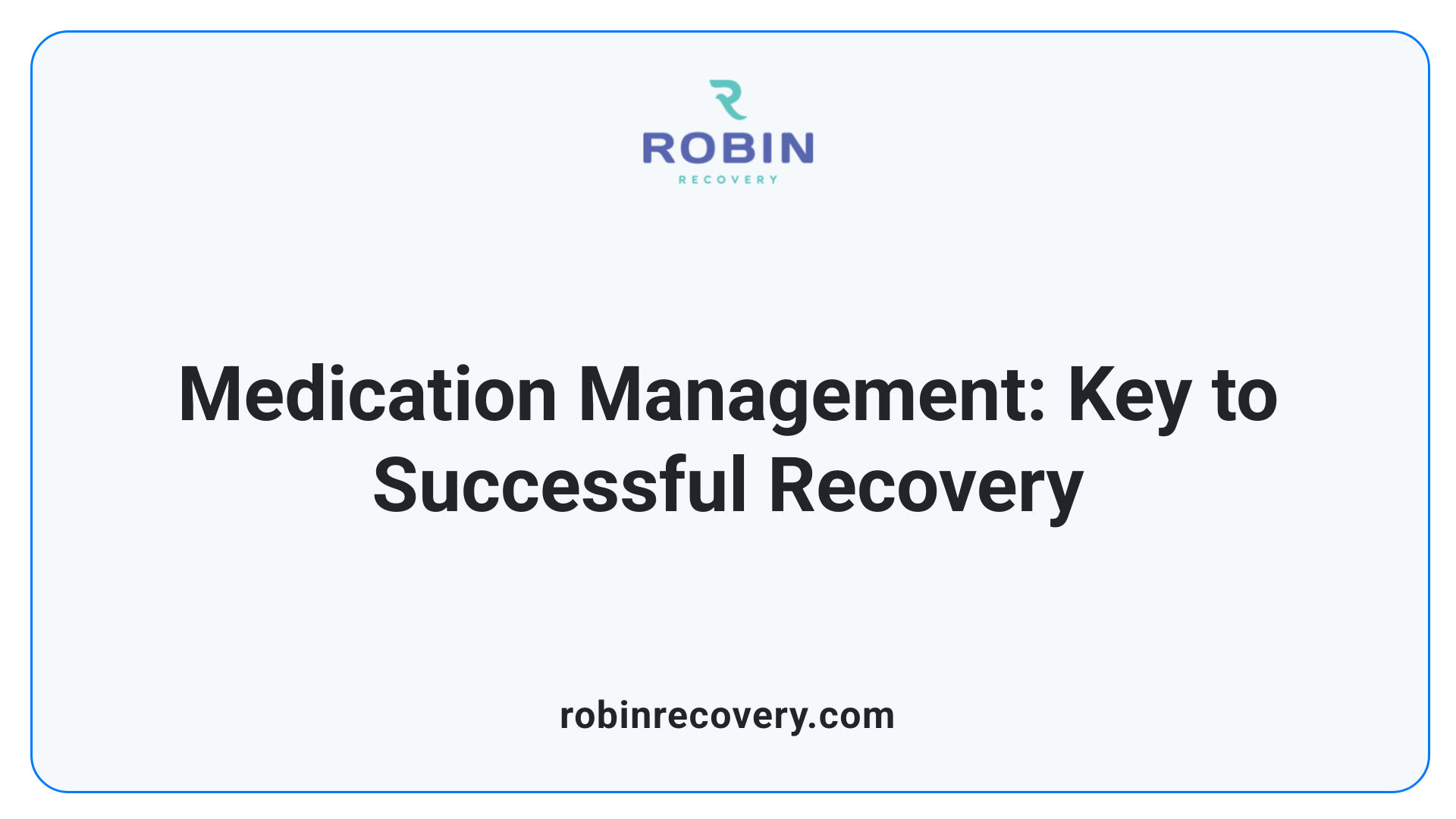
How does medication management benefit patient recovery outcomes?
Medication management, especially through Medication Therapy Management (MTM), is essential for improving patient recovery outcomes. By tackling issues like polypharmacy and mitigating the risks of adverse drug events, MTM services significantly enhance patient care.
MTM offers a patient-centered approach that includes comprehensive medication reviews, individual education, and proactive follow-up care. This empowers patients to take charge of their health more effectively. Research highlights that effective MTM can lead to better medication adherence, minimizing errors, and ultimately improving clinical outcomes. These improvements can manifest as lower morbidity rates and enhanced quality of life for patients.
Additionally, MTM focuses on coordinating care among various healthcare providers. This collaboration ensures that drug therapy issues are identified and addressed swiftly, promoting safer medication practices. This is particularly crucial for older adults, who frequently manage multiple prescriptions and may face challenges in adhering to complex medication regimens.
In summary, medication management through MTM not only optimizes therapeutic outcomes but also plays a crucial role in enhancing patient recovery by fostering safer, more effective medication use and improved health engagement.
What are the challenges posed by polypharmacy in medication management?
Polypharmacy, defined as the concurrent use of multiple medications, is a growing concern, especially among older adults. The complexity of managing several prescriptions can lead to confusion, missed doses, and increased risk of adverse effects.
Challenges include:
- Drug Interactions: Increased possibility of adverse reactions when multiple medications are combined.
- Side Effects: Higher chances of experiencing side effects, which can discourage adherence.
- Cost: Managing multiple medications can lead to increased financial burdens, impacting adherence.
- Cognitive Impairment: Patients with cognitive challenges may struggle to manage complex regimens effectively.
To combat these issues, medication management systems and MTM programs utilize tools such as medication reconciliation and regular reviews to tailor medication plans to each patient's unique needs and simplify their medication regimens.
What is Medication Therapy Management (MTM)?
Medication Therapy Management (MTM) is a structured approach to optimizing medication regimens and enhancing medication adherence. This program includes various services that ensure patients receive personalized medication oversight.
Key aspects of MTM include:
Service Type Description Benefits Comprehensive Reviews Thorough assessments of all medications, including appropriateness and effectiveness Reduces errors and improves safety Patient Education Teaching patients about their medications and potential side effects Enhances adherence and engagement Care Coordination Collaborating with healthcare providers to manage patient care efficiently Streamlines treatment process Follow-up Monitoring Continuous check-ins to gauge treatment effectiveness and patient satisfaction Identifies issues promptly
Overall, MTM serves as a critical tool in fostering better health outcomes, ensuring that every medication a patient is prescribed contributes positively to their overall recovery.
Elements of Effective Medication Management Systems
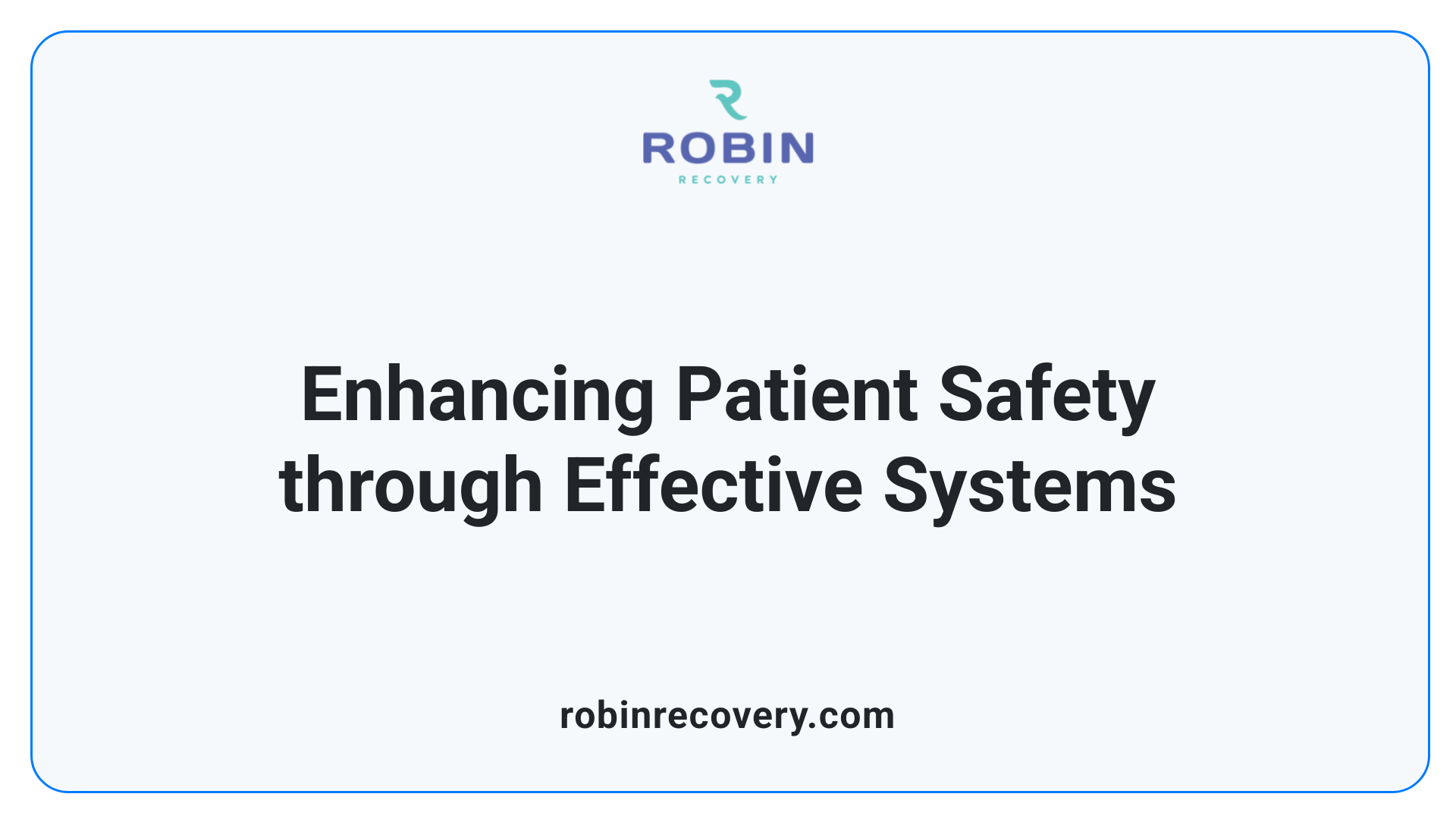
What are the processes involved in medication management systems to enhance patient safety?
Medication management systems are designed to ensure the safe and effective use of medications. They encompass several key processes:
- Monitoring Prescriptions: Regular tracking of each patient's prescriptions ensures adherence to the correct dosages and timing.
- Thorough Medication Reviews: These reviews compare current medications with medical records to prevent potential interactions and errors, ensuring only necessary medications are prescribed.
- Patient Education: Informing patients about their medications increases engagement and adherence. Education includes discussions about side effects, the importance of taking medications as prescribed, and how to manage confusion with complex regimens.
Technology plays a significant role in enhancing these processes. For example, medication reminder apps allow patients to track their intake effectively. Tailored treatment plans can help individuals manage multiple prescriptions, particularly for those with chronic conditions.
Effective communication between patients and healthcare teams is also crucial. This collaboration allows for a comprehensive understanding of all medications being taken, which is vital for overall safety and efficacy.
In summary, a structured medication management approach is essential to optimize treatment outcomes and mitigate healthcare costs resulting from medication mismanagement.
Structured Medication Management Interventions and Patient Recovery
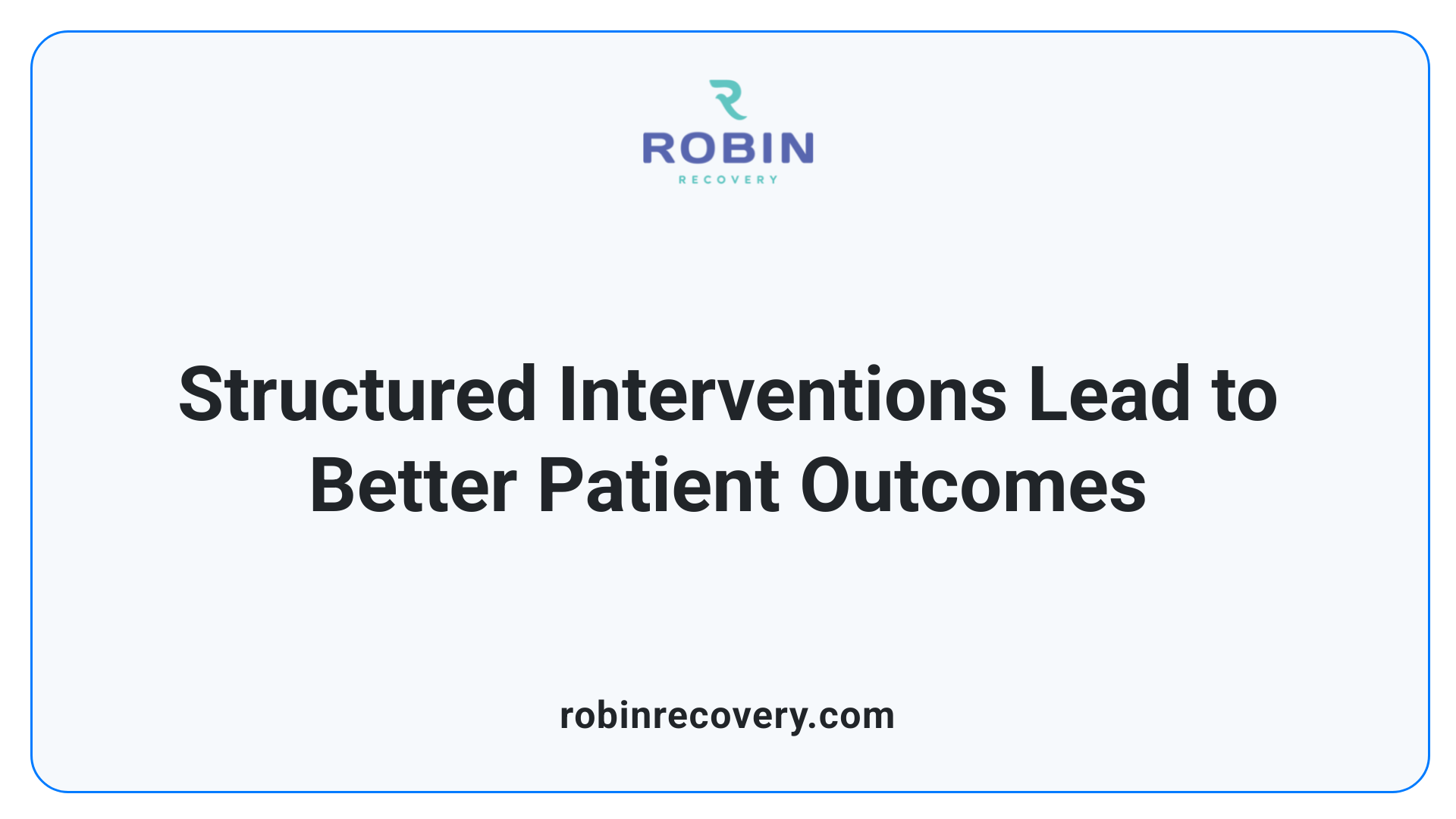
Are structured medication management interventions effective in improving patient recovery?
Yes, structured medication management interventions are effective in improving patient recovery. The Institute of Medicine indicates that hospitalized patients experience significant risks, with at least one medication error occurring daily, particularly due to inadequate medication reconciliation during patient transitions like admissions, transfers, and discharges.
A formal medication reconciliation process can significantly mitigate errors such as omissions, duplications, and drug interactions. Implementing robust practices minimizes adverse drug events and enhances overall patient safety. In fact, studies demonstrate that effective medication reconciliation decreases the percentage of patients with unresolved discrepancies between admission and discharge, fostering better clinical outcomes.
What is the role of nursing staff in medication management?
The involvement of nursing staff in medication management is pivotal. Nurses not only monitor patients’ medication intake but also educate them about their treatments. This guidance is crucial for understanding medications, side effects, and adhering to prescribed regimens.
By collaborating with healthcare teams—physicians, pharmacists, and mental health counselors—nursing staff helps facilitate smoother transitions in care. Their active participation ensures that patients are well-informed and engaged, ultimately reinforcing the effectiveness of structured medication management strategies.
Key Benefits Summary
BenefitDescriptionReduction in Errors Minimizes medication errors through structured processes. Enhanced Safety Decreases adverse drug events and improves patient outcomes. Patient Education Nurses play a crucial role in informing patients about medications. Effective Transition of Care Facilitating better communication among healthcare providers.
Structured medication management, particularly via effective reconciliation and the supporting role of nursing staff, is crucial for improving recovery outcomes and enhancing patient safety in healthcare settings.
The Role of Communication in Medication Management
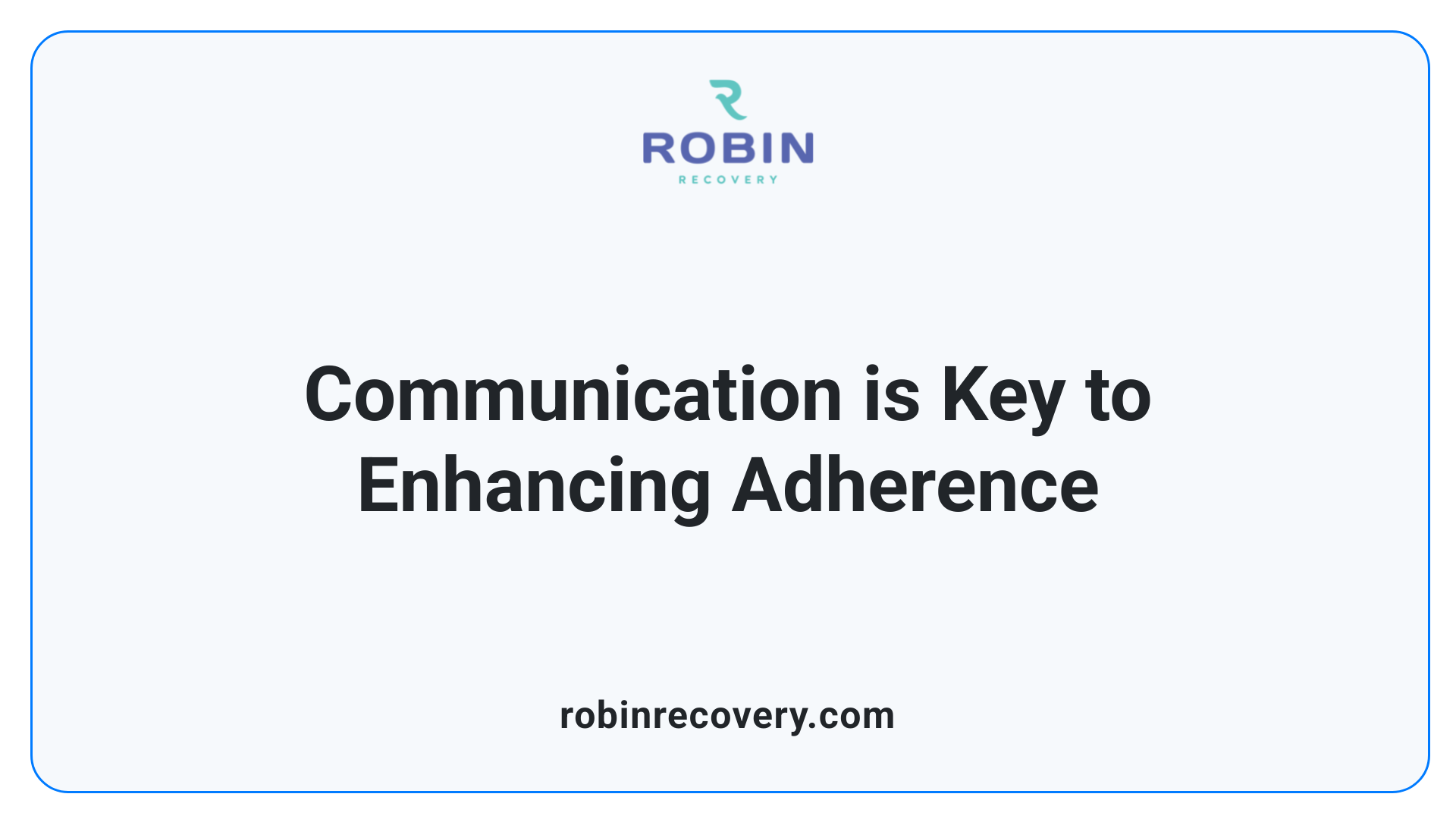
Patient-provider relationships
Building strong relationships between patients and healthcare providers is essential for encouraging medication adherence. Trust fosters openness, enabling patients to communicate their concerns about medications including side effects or costs. This supportive environment allows for tailored advice, enhancing adherence rates and improving health outcomes.
Effective communication strategies
Effective communication strategies can significantly impact medication management. Techniques such as active listening, open-ended questions, and empathetic responses cultivate deeper interactions. Providing clear, jargon-free explanations about treatment plans, potential side effects, and the importance of adherence makes patients feel more engaged and informed.
Challenges in adherence
Despite the importance of communication, challenges remain. Barriers like forgetfulness, skepticism regarding the effectiveness of medications, and high costs can obstruct adherence. Moreover, patients may feel hesitant to discuss these issues. Encouraging a culture that promotes inquiry and discussion can help address these hurdles, ultimately fostering better medication adherence and improved recovery outcomes.
Key AreasImplications of CommunicationStrategiesPatient-provider relationships Builds trust and openness Regular check-ins and supportive dialogues Effective communication strategies Ensures patient understanding and engagement Use of clear language and active listening Challenges in adherence Identifies barriers and enhances solutions Encourage questions and discuss concerns openly
EHealth Interventions for Enhanced Medication Adherence
Impact of eHealth technologies
EHealth technologies are reshaping medication management by improving adherence through innovative communication methods and reminders. These tools enable patients to interact with their healthcare providers more effectively, fostering better understanding and accountability regarding their medication regimens.
Nonhospital settings
In nonhospital settings, such as outpatient care, eHealth interventions have shown significant effectiveness. They aid patients in monitoring their health and adhering to their treatment plans, helping prevent complications associated with chronic conditions.
Effectiveness studies
A systematic review examining 24 randomized controlled trials (RCTs) from 2000 to 2018 found that eHealth interventions considerably enhanced medication adherence. Notably, 12 studies showed significant improvements at a P < .1 level. The most impactful tools included reminder systems, health monitoring capabilities, and educational resources—demonstrating the potential of technology to improve health outcomes by addressing adherence challenges.
EHealth Function Description Significance Level (P-value) Communication with Caregivers Supports patient-provider interaction P < .1 Health Monitoring Allows real-time health tracking P < .1 Reminder Systems Increases medication compliance P = .02 Education Improves medication understanding P = .02
Overall, the integration of eHealth tools in medication management presents a promising approach to overcoming barriers to adherence, ultimately enhancing patient recovery and care.
Medication Management in Mental Health Treatment
How Can Medication Management Improve Mental Health Conditions?
Medication management plays a vital role in the treatment of various mental health disorders such as depression, anxiety, and bipolar disorder. By ensuring patients adhere to prescribed regimens, medication management can enhance mood stabilization and reduce symptoms effectively. Proper management influences not only recovery but also the overall quality of life, empowering individuals to navigate their mental health challenges with confidence.
What Does a Personalized Treatment Plan Involve?
A personalized treatment plan is key to successful medication management in mental health care. This plan focuses on aligning the choice of medications, dosages, timing, and frequency with the unique needs of each patient. Regular consultation and collaboration with healthcare professionals help tailor treatments, ensuring they respond effectively to individual health profiles, thereby fostering better adherence and recovery outcomes.
What Strategies Support Monitoring and Adjustment?
Effective strategies in medication management include continuous monitoring and adjusting treatments based on patient feedback and therapist evaluations. Regular check-ins allow healthcare providers to assess the effectiveness of medications, make necessary adjustments, and address any side effects or concerns. This ongoing dialogue not only improves adherence but also helps patients feel more engaged and supported throughout their recovery journey.
Topic Description Benefits Improvement of mental health Focused on treating conditions effectively Enhanced quality of life Personalized treatment plans Customized based on individual needs Increased adherence Continuous monitoring Regular reviews and adjustments of medications Better symptom management
Addressing Addiction Recovery with Medication Management
What are the strategies for managing withdrawal symptoms?
Medication management plays a crucial role in addressing withdrawal symptoms for individuals in addiction recovery. Medications such as methadone or buprenorphine can ease the intense cravings and physiological symptoms associated with withdrawal. Furthermore, clinicians often tailor medication regimens to each individual’s needs, adjusting dosages to optimize comfort while ensuring adherence to the recovery program. This personalized approach minimizes distress and supports the recovery journey.
How do co-occurring disorders impact medication management?
Many individuals struggling with addiction also face co-occurring mental health disorders, such as anxiety or depression. Effective medication management must address both these issues concurrently. Integrated treatment plans that incorporate behavioral therapy alongside proper psychiatric medications can significantly enhance recovery outcomes. Ensuring an understanding of how these medications interact is vital to maintaining patient safety and adherence.
What are comprehensive support systems?
Comprehensive support systems are instrumental in effective medication management throughout addiction recovery. These systems typically include healthcare providers, pharmacists, and counseling services that work collaboratively to create an individualized recovery plan. Regular check-ins and medication monitoring through these support systems can significantly improve adherence rates and therapeutic outcomes, facilitating a smoother path to recovery.
Economic Benefits of Comprehensive Medication Management Programs
Cost Savings from CMM Programs
Comprehensive Medication Management (CMM) programs offer substantial economic benefits for healthcare systems. Evidence from recent studies indicates that these programs can lead to significant cost savings—one analysis reported cumulative savings of approximately $603,792.82 USD attributed to improved medication adherence and overall management.
Avoidance of Unnecessary Services
A key aspect of CMM is its role in avoiding unnecessary medical services. In a recent study of 347 pharmaceutical interventions within a CMM program, a notable 66.3% of specialty office visits and numerous outpatient visits were prevented. This demonstrates how CMM can streamline care, reducing the burden on healthcare facilities and enabling better focus on essential treatments.
Pharmacist-led Consultations
Pharmacist-led consultations are pivotal in enhancing medication adherence. These interventions typically address therapy adherence challenges that typically sit at an alarming average rate of only 50% for chronic diseases. By engaging pharmacists as integral team members, patients receive personalized support that can lead to improved health outcomes and lower healthcare costs—for instance, studies show that better adherence to antihypertensive medications correlates with a 30%-45% higher chance of effective blood pressure control, leading to substantial reductions in healthcare spending.
Aspect Economic Impact Evidence Source Cost Savings $603,792.82 in total savings through CMM Recent economic analysis Unnecessary Services Avoided 66.3% reduction in specialty visits CMM intervention study Pharmacist Engagement 30%-45% higher likelihood of blood pressure control Studies on hypertension care
Effective CMM programs not only improve patient health but also provide essential economic advantages for the healthcare system.
Challenges and Strategies in Medication Management
Barriers to Adherence
Medication adherence can be significantly hampered by various barriers. Patients often face challenges such as forgetfulness, skepticism regarding medication effectiveness, fears about potential side effects, and the high costs associated with prescriptions. These barriers not only hinder the adherence rates but also complicate overall health management, especially for those with chronic conditions.
Creating Effective Medication Schedules
To combat these issues, creating effective medication schedules is essential. This can include using pill organizers, setting reminders on mobile devices, or employing simple charts that outline when and how to take medications. Engaging patients in the process ensures that their personal preferences and routines are taken into consideration, thereby enhancing compliance and facilitating their recovery.
The Role of Technology and Support Systems
Technology plays a pivotal role in supporting medication management. Apps and electronic health systems can send reminders and alerts, track intake, and even offer educational resources for patients. Furthermore, the integration of community support systems, such as healthcare providers and pharmacists, can facilitate better communication and foster relationships, ultimately leading to improved adherence rates.
Strategy Type Description Benefits Scheduling Aids Use of pill organizers, reminders, and charts Increases adherence, reduces errors Technology Integration Apps for tracking medication intake and alerts Enhances engagement, provides education Community Support Involvement of pharmacists and healthcare providers Fosters relationships, improves compliance
Implementing these strategies can lead to improved health outcomes and reduced healthcare costs associated with poor medication adherence.
Embracing Effective Medication Management for Better Health Outcomes
Medication management is a multifaceted approach critical to enhancing recovery outcomes in healthcare. By improving medication adherence, utilizing eHealth interventions, and refining communication strategies, we can achieve significant advancements in patient recovery. Healthcare systems must adopt these practices to optimize therapeutic outcomes, reduce costs, and ultimately improve the quality of life for patients, especially those dealing with chronic conditions or navigating mental health treatments. Embracing comprehensive medication management programs not only facilitates better patient outcomes but also presents substantial economic benefits.
References
- Medication Adherence and Compliance: Recipe for Improving ...
- How Medication Management is Improving Patient Care
- Improving Patients' Medication Adherence and Outcomes in ...
- Medication Mangement | Relevance Recovery
- What is Medication Management: A Guide for Optimal Health Care
- Why is Medication Management Important? - Care Indeed
- 7 Benefits of Proper Medication Management - REAN Foundation
